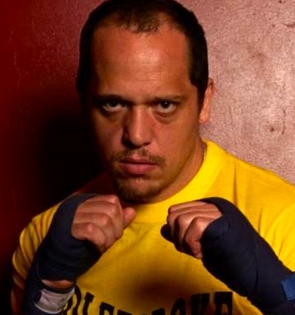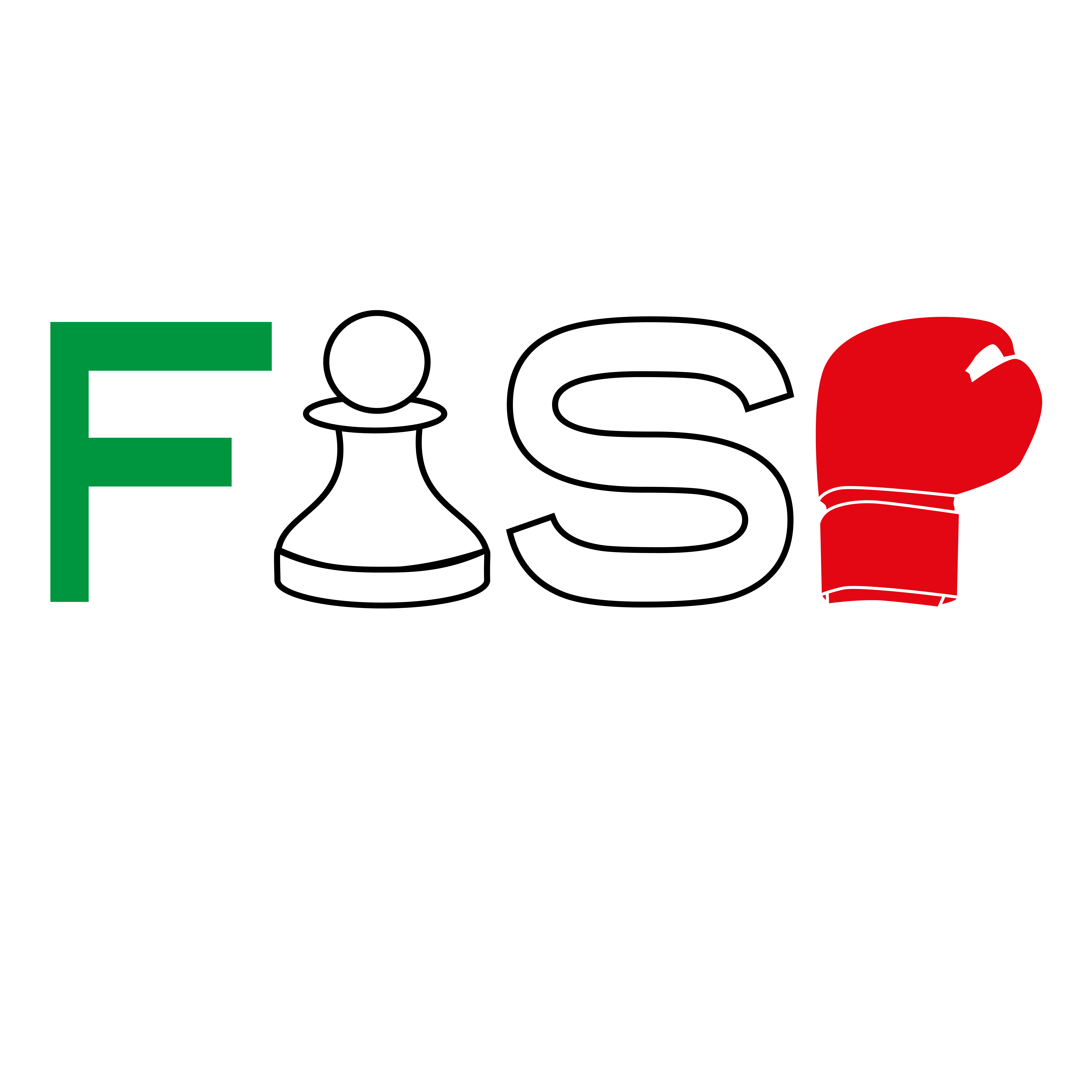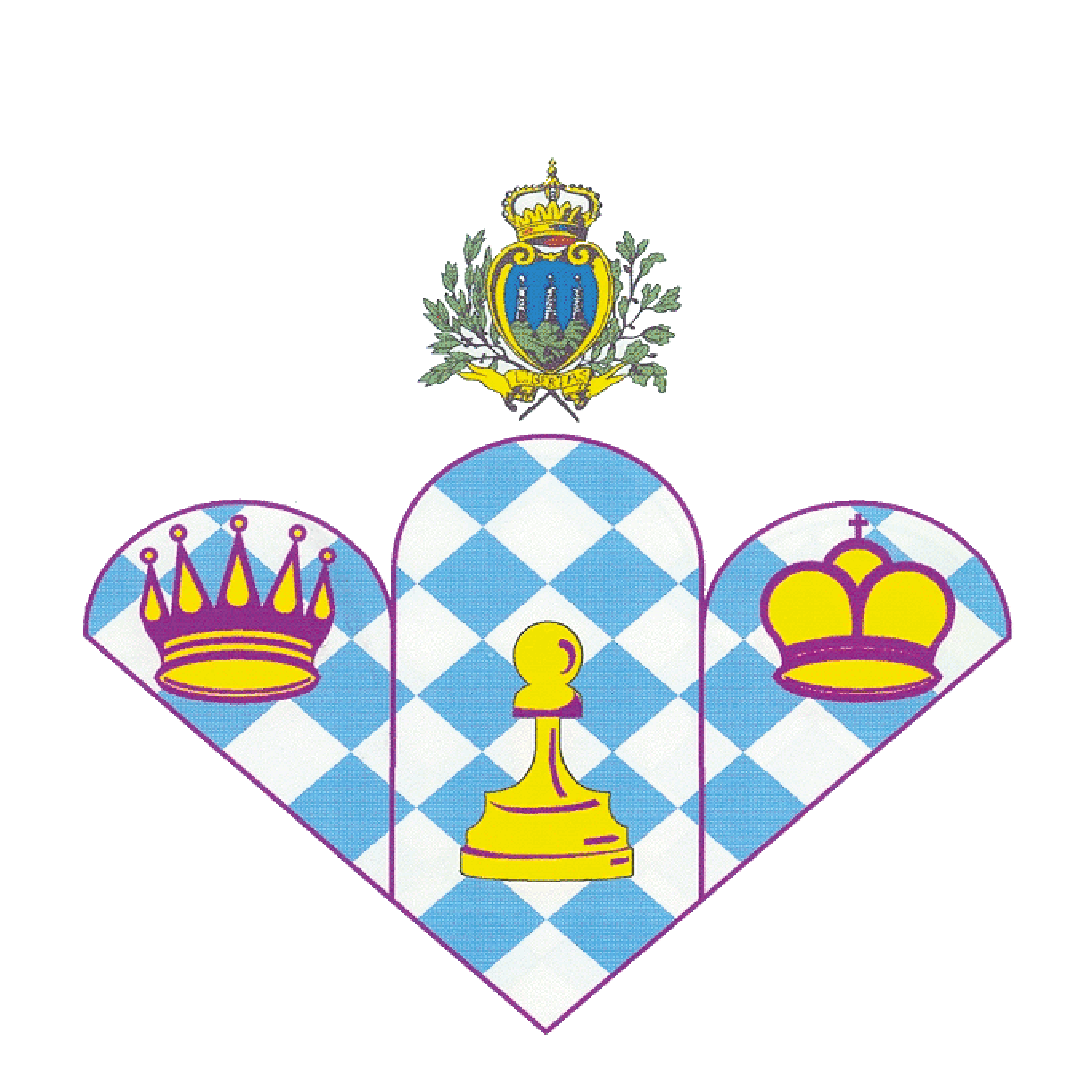ChessBoxing World
Press Details

 THE PROTAGONISTS - Sergio Leveque, the man who was born twice
THE PROTAGONISTS - Sergio Leveque, the man who was born twice
28/08/2023
MMA athlete and boxer, he discovered Chessboxing during his long convalescence from a bad accident. Reigning heavyweight world champion, he is aiming to win
As always
It is not true, at least not for everyone, that you are born only once. Life and fate, when they wish, know how to complicate existence, leading towards the day when one comes into the world again. For the second time.
That‘s how it went for Sergio Leveque: born in 1978, from the Marche region of Senigaglia, he was literally reborn in 2010. In between, there are five years of ‘daring descents and ascents‘, in the words of Lucio Battisti. It is no coincidence that his symbol and nickname is still ‘The Phoenix‘, the phoenix, the mythological bird that is reborn from its own ashes. The symbol of resilience and the ability to react and overcome adversity using all one‘s strength.
An MMA athlete, a boxer, a sportsman in his soul, Sergio had always been one, but in 2005 everything came to a sudden halt: the victim of a serious car accident, when he woke up in a hospital bed, the doctors left him with little hope: he had to be strong, because he would probably lose his right leg. In front of Leveque, a mountain of a man, there is the crossroads of life, the one that sooner or later comes for everyone: on the one hand letting go of a destiny that who knows why it wanted it that way, on the other hand gritting one‘s teeth until biting the lip and reacting, fighting, conquering something more every day.
What followed were three surgeries, one more delicate than the other, and above all three whole years on crutches, another to overcome the pain of being able to stand on his own two feet, and the last when he finally returned to training: it was 2010, the year of rebirth.
But since nothing around here happens by chance, the encounter with ChessBoxing becomes another turning point in Sergio‘s life.
When did you discover chess boxing?
During my long convalescence after my accident, I accidentally read an article about this discipline, which was new and so special that it made me want to try it.
What struck you most?
I was incredulous: putting together a game that requires great mental application like chess and a sport like boxing in which, on the contrary, you need muscles, I found it so unusual that it became fascinating.
What were your first feelings when you experienced it?
The moment of transition from one engagement to another, when the gong rings and you have minutes to find the concentration not to miss a move on the chessboard. It can‘t be easy... No, not at all: you have to learn not to feel the pain in your muscles and tame the adrenaline of boxing, to sit in front of the chessboard and understand which piece to move. In football if you hit a goal you can make up for it, in tennis if you lose a set you can make up for it, with chess boxing losing your concentration means flying to the ground from a punch or hearing your opponent say ‘checkmate
How do you train?
I have developed my own very personal protocol that alternates between maximum effort for one minute and a game of concentration for two. Body and mind, all the time, like the warriors of yesteryear. In fact, there is something very ancient about alternating between chess and boxing
It should be the Olympic sport par excellence, because it is the most complete discipline there is, the one that means winning a battle first of all against yourself.
You have three children, are any of them approaching ChessBoxing?
No, they are still small and for now prefer volleyball and swimming. On the other hand, they enjoy following me: in Paris, last February, when I won the world heavyweight title, my whole family was at ringside.
But is it a discipline you also recommend to the very young?
And how. Learning to master the body and mind is a very important skill in growth: it allows one to gain self-confidence, physical fitness, balance. Chess develops self-control and the ability to concentrate, while boxing is a highly physically formative sport.
The World Championships in Riccione are approaching: do you and your colleagues feel the pressure rising? There is a lot of expectation in the environment...
Personally I am very calm, but I think it depends a lot on the experience I have gained over the years in rings all over the world. On the other hand, during collective training I have seen some very interesting young people, who in my opinion will guarantee the discipline a future.
Last question: are you training to keep your title?
I have no intention of surrendering it, moreover in Italy, at home. I would like to make that very clear.
 I PROTAGONISTI - Sergio Leveque, l’uomo che è nato due volte
I PROTAGONISTI - Sergio Leveque, l’uomo che è nato due volte
28/08/2023
Atleta MMA e pugile, scopre il Chessboxing durante la lunga convalescenza per un brutto incidente. Campione del mondo dei pesi massima in carica, punta a vincere. Come sempre
Non è vero, almeno non per tutti, che si nasce una sola volta. La vita e il destino, quando vogliono, sanno complicare l’esistenza, portando verso il giorno in cui si viene al mondo di nuovo. Per la seconda volta. A Sergio Leveque è andata così: classe 1978, marchigiano di Senigaglia, è letteralmente rinato nel 2010. In mezzo, ci sono 5 anni di “discese ardite e risalite”, per dirla come Lucio Battisti. Non è un caso, se il suo simbolo e soprannome è ancora oggi “The Phoenix”, l’araba fenice, l’uccello mitologico che rinasce dalle proprie ceneri. Il simbolo della resilienza e della capacità di reagire e superare le avversità usando tutta la propria forza. Atleta di MMA, pugile, sportivo nell’anima, Sergio lo era sempre stato, ma nel 2005 tutto si ferma, di colpo: vittima di un grave incidente stradale, quando si sveglia, nel letto di un ospedale, i medici gli lasciano poche speranze: deve farsi forza, perché probabilmente perderà la gamba destra. Di fronte a Leveque, una montagna d’uomo, c’è il bivio della vita, quello che prima o poi arriva per tutti: da una parte lasciarsi andare ad un destino che chissà perché ha voluto così, dall’altra stringere i denti fino a mordersi le labbra e reagire, lottare, conquistare ogni giorno qualcosa di più. Quelli che seguono sono tre interventi chirurgici uno più delicato dell’altro, e soprattutto tre anni interi con le stampelle, un altro per vincere il dolore di riuscire a stare in piedi da solo e l’ultimo quando finalmente torna ad allenarsi: è il 2010, esattamente quello della rinascita. Ma visto che nulla da queste parti accade per caso, l’incontro con il ChessBoxing, diventa un altro giro di boa della vita di Sergio.
Quando hai scoperto lo scacchipugilato?
Durante la lunga convalescenza dopo l’incidente ho letto per caso un articolo che raccontava di questa disciplina, nuova e così particolare da mettermi la voglia di provare.
Cosa ti ha colpito di più?
Ero incredulo: mettere insieme un gioco che richiede grande applicazione mentale come gli scacchi ed uno sport come al pugilato in cui al contrario servono i muscoli, lo trovavo così insolito da diventare affascinante.
Le prime sensazioni, quando hai provato di persona?
Il momento della transizione da uno all’altro, quando suona il gong e hai minuto per trovare la concentrazione per non sbagliare una mossa sulla scacchiera.
Non dev’essere facile…
No, per niente: bisogna imparare a non sentire il dolore dei muscoli e domare l’adrenalina della boxe, per sedersi davanti alla scacchiera e capire che pezzo muovere. Possibilità di errore, nessuna: nel calcio se prendi una rete puoi rimediare, nel tennis se perdi un set anche, con lo scacchipugilato smarrire la concentrazione significa volare al tappeto per un pugno oppure sentire l’avversario che dice “scacco matto”.
Come ti alleni?
Ho sviluppato un mio protocollo molto personale che alterna il massimo sforzo per un minuto e un gioco di concentrazione per due. Corpo e mente, di continuo, come i guerrieri di un tempo.
In effetti, c’è qualcosa di molto antico nell’alternarsi di scacchi e boxe…
Dovrebbe essere lo sport olimpico per eccellenza, perché è la disciplina più completa che ci sia, quella che significa vincere una battaglia prima di tutto contro se stessi.
Hai tre figli, qualcuno di loro si sta avvicinando al ChessBoxing?
No, sono ancora piccoli e per adesso preferiscono pallavolo e nuoto. In compenso si divertono a seguirmi: a Parigi, lo scorso febbraio, quando ho conquistato il titolo mondiale dei massimi, a bordo ring c’era la mia famiglia al completo.
Ma è una disciplina che consigli anche ai giovanissimi?
Eccome. Imparare a dominare il corpo e la mente rappresenta uno skill importantissimo nella crescita: permette di acquisire fiducia in se stessi, forma fisica, equilibrio. Gli scacchi sviluppano l’autocontrollo e la capacità di concentrazione, mentre il pugilato è uno sport altamente formativo a livello fisico.
Si avvicina l’appuntamento con i Mondiali di Riccione: tu e i tuoi colleghi sentite alzarsi la pressione?
Nell’ambiente c’è molta attesa…
Personalmente sono molto tranquillo, ma credo dipenda molto dall’esperienza maturata per anni sui ring di tutto il mondo. In compenso nel corso degli allenamenti collettivi ho visto dei giovani molto interessanti, che secondo me garantiranno alla disciplina un futuro.
L’ultima domanda: ti stai allenando per mantenere il titolo?
Non ho nessuna intenzione di cederlo, per di più in Italia, a casa mia. Vorrei fosse ben chiaro.














